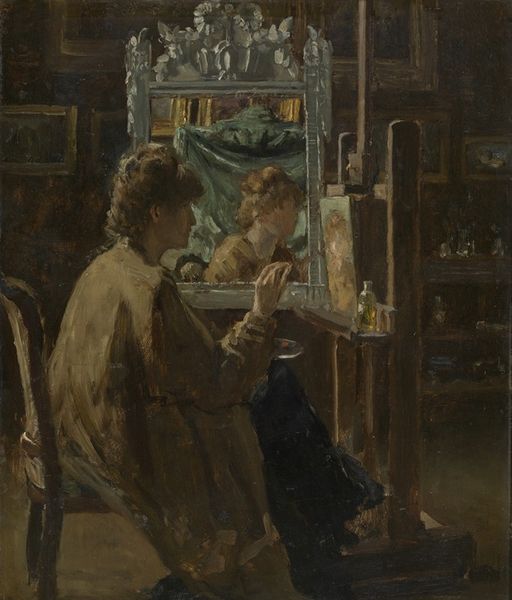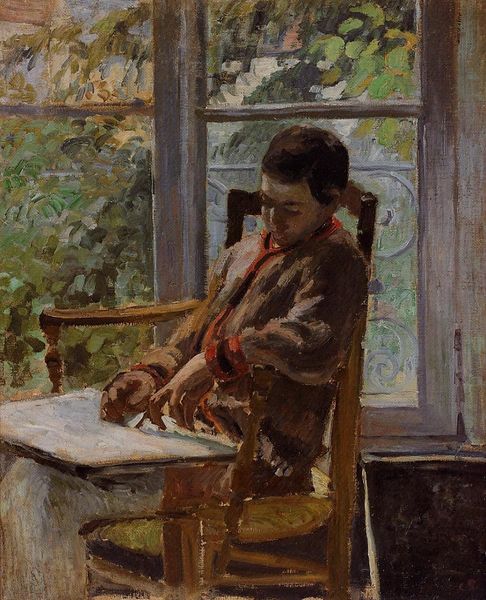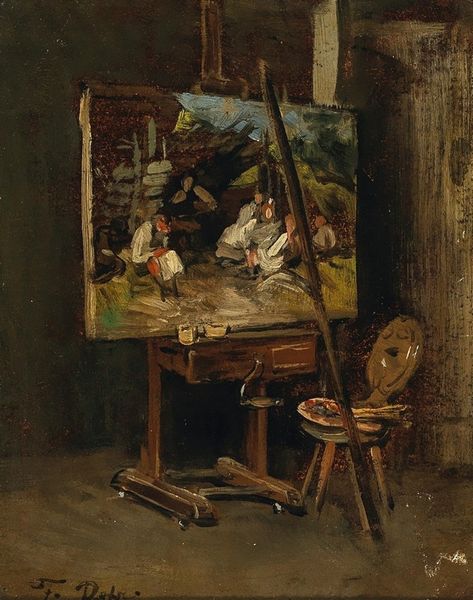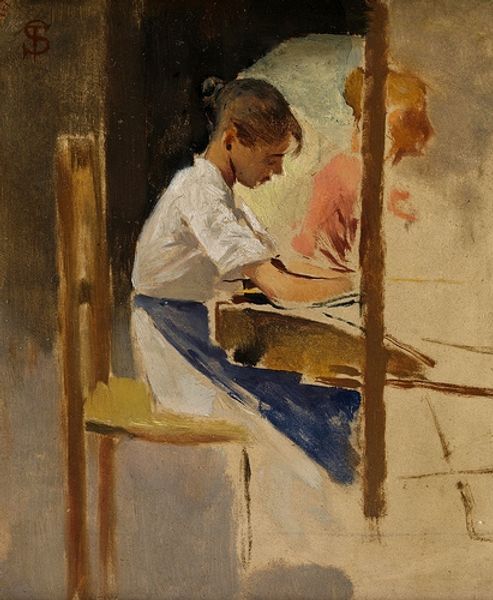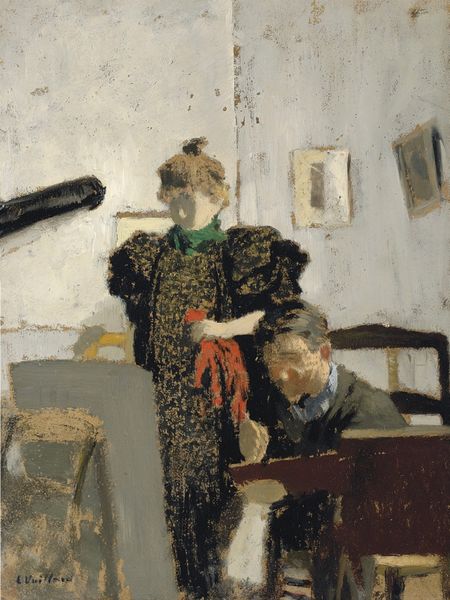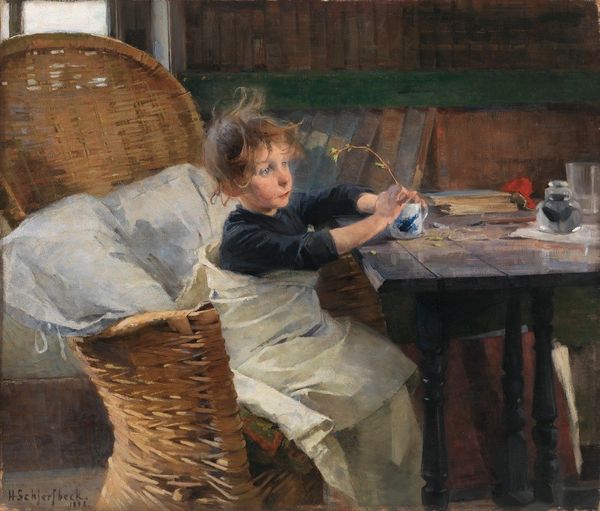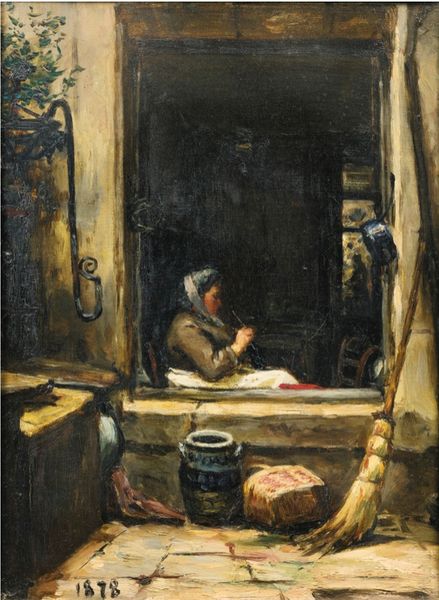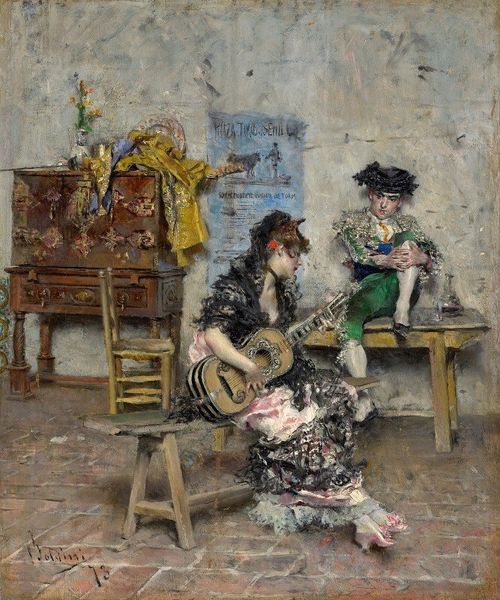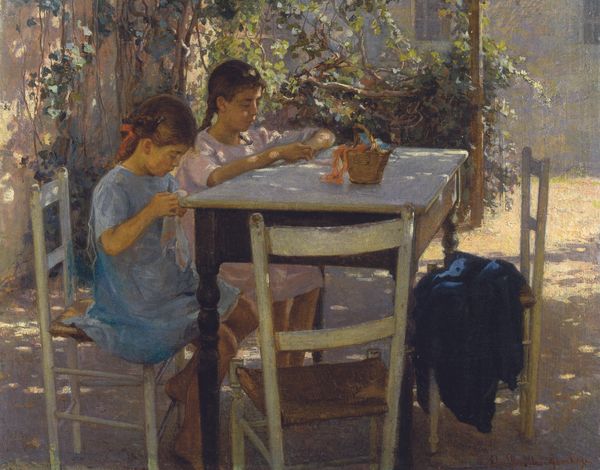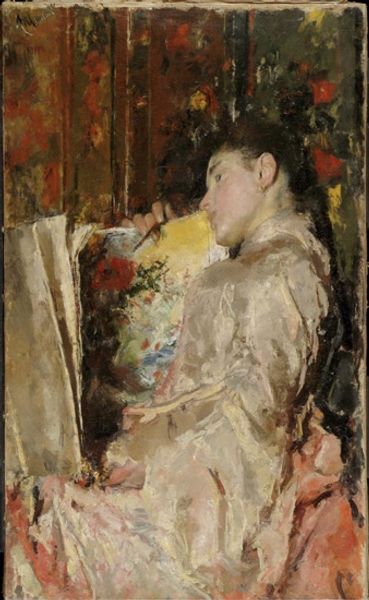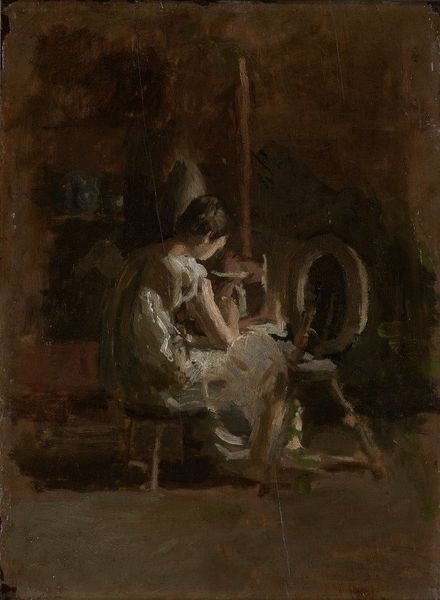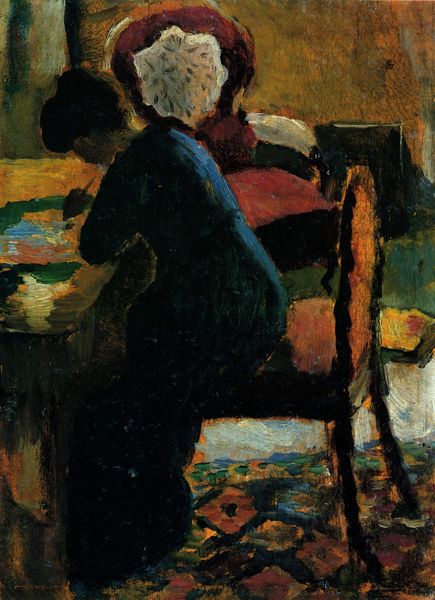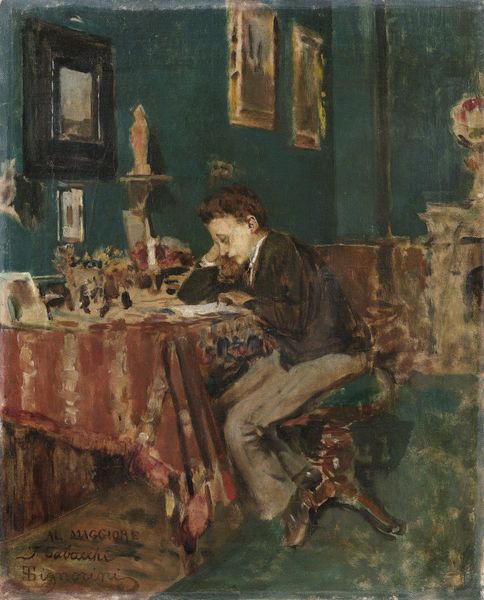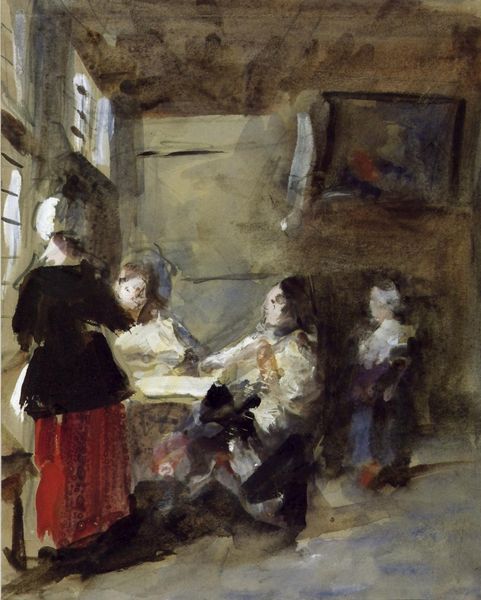
painting, oil-paint, impasto
#
portrait
#
self-portrait
#
painting
#
impressionism
#
oil-paint
#
impasto
#
intimism
#
genre-painting
#
italian-renaissance
#
expressionist
Copyright: Public domain
Curator: Let’s consider Vincenzo Irolli's, 'Il piccolo pittore.' What strikes you upon first viewing? Editor: There's a real materiality here, isn't there? I am captivated by the thick impasto of the oil paint, how the strokes create form. It looks almost sculpted in places. Curator: I see it too. And note how that impasto highlights a recurring theme for Irolli: that of everyday life elevated through skilled craft. Look closely, the scene depicts a young boy engrossed in painting. Editor: There's such a beautiful naivety, I think, in the portrayal of child labour, but the labour of artistry is highlighted as honest. Curator: Absolutely. It's interesting how he captures this specific intersection of the artist and muse, almost like a childhood ambition made manifest. Look at the staging: a room flooded with sunlight, an easel, a colorful palette… almost the tropes of an art studio, but scaled for youth! Editor: That very staging shows what happens if artists come from money and the labor practices upheld in studios such as these. Curator: Do you see that his gaze meets his own reflection in the mirror? Almost reminiscent of Velasquez! It is very telling when thinking of Italian studio politics. Editor: The very physical application of the paint is fascinating. The thick, deliberate strokes. One feels the artist's hand, really gets a sense of labor and that, ultimately, we're dealing with pigment mashed together with oil on humble linen stretched over a frame. I am seeing the labor, quite literally. Curator: It seems like this picture shows what we demand as societies in that period, that one must be creative and must do good in art or suffer the implications and consequences of the social construct of being an artist! Editor: The history of childhood itself is captured through the manipulation of his materials, reminding us to appreciate artistry as honest labour, even, or especially, in our industrial age. Curator: Indeed, seeing Irolli and his relationship to a rising artistic and middle-class structure really puts things in perspective. Editor: Exactly, it brings the physical to the foreground, complicating the myth of the "divine genius."
Comments
No comments
Be the first to comment and join the conversation on the ultimate creative platform.
